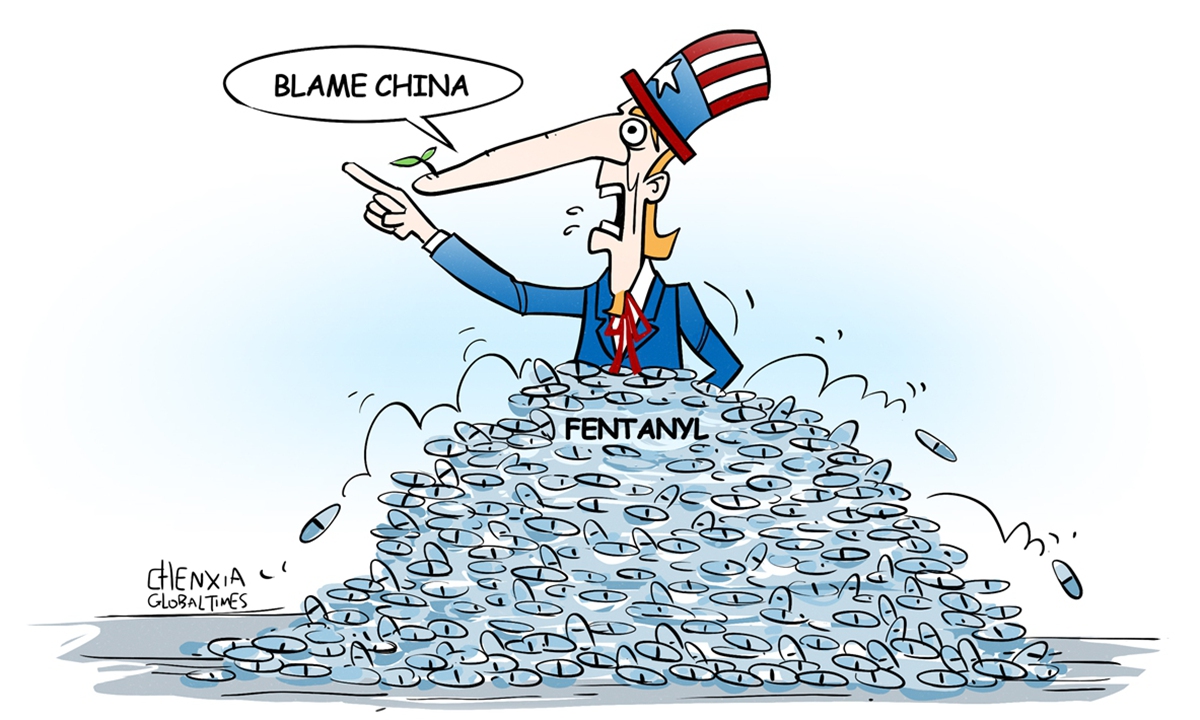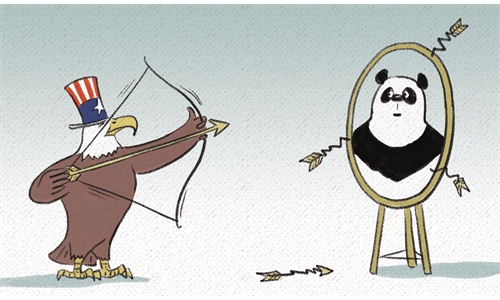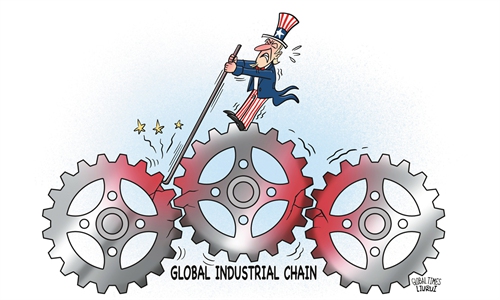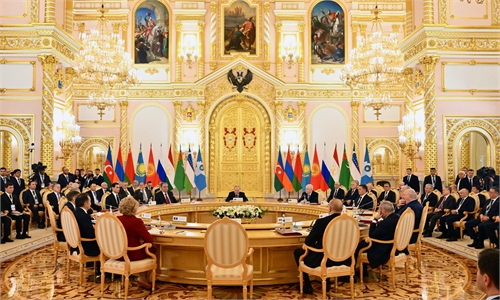
Illustration: Chen Xia/GT
As a result of repeated hype by the US, the fentanyl issue has become a "sensitive topic" in China-US relations, with some American actions turning the fentanyl issue into a tool for extortion and diplomatic attacks against China.
US President-elect Donald Trump said recently that on his first day in office he would impose a 25 percent tariff on imports from Canada and Mexico, and an additional 10 percent tariff on imports from China, as part of his effort to crack down on illegal immigration and drugs.
The US has politicized the fentanyl issue, using it as a tool to apply diplomatic pressure on China. This approach is essentially an attempt to avoid addressing the root causes of the US drug abuse crisis by shifting the blame onto China. It not only fails to help resolve the fentanyl crisis in the US, but also undermines the two countries' cooperation in anti-drug efforts. A Chinese Foreign Ministry spokesperson made it clear that "fentanyl is an issue for the US. In the spirit of humanity, China has given support to the US' response to this issue.
China remains ready to continue counternarcotics cooperation with the US on the basis of equality, mutual benefit and mutual respect. We hope the US will not take China's goodwill for granted and work to ensure that the hard-won positive dynamics will stay in the counternarcotics cooperation." Fentanyl is an American problem.
As a synthetic opioid, fentanyl abuse is a serious issue in the US, but blaming this problem on China, or using it as a justification for imposing tariffs, is a classic example of deflecting responsibility. The root cause of the fentanyl crisis in the US lies within its own borders, caused by insufficient regulation of fentanyl, loopholes in the healthcare system, and various social and cultural factors. The solution to the crisis is to reduce both domestic demand and supply, and not to scapegoat other countries. What the US should do is introspect, strengthen the control of prescription drugs and raise public awareness about the dangers of fentanyl - not slander and shift blame onto others. By blaming China, the US is evading responsibility for its own policy failures and governance shortcomings.
The US is instrumentalizing the fentanyl issue as a tool for diplomatic extortion, which is a short-sighted and harmful approach that damages China-US cooperation in anti-drug efforts. The war on drugs is a global challenge that requires the collective effort of all countries. Both China and the US are signatories to three main international drug control conventions under the United Nations framework, and therefore have a shared responsibility to combat drug abuse.
China has been actively engaged in international anti-drug cooperation, with a long history of collaboration with the US in this field. The two countries have undertaken extensive and in-depth cooperation in anti-drug efforts, achieving significant results that are widely acknowledged. China has provided humanitarian support to the US in addressing the fentanyl issue to the best of its ability. The US should value this cooperation and work to maintain the hard-won positive state of China-US anti-drug collaboration. However, by politicizing the fentanyl issue and attempting to pressure China through tariffs and other means, the US is undoubtedly weakening China's willingness to cooperate and undermining the effectiveness of such cooperation.
The US should face the root of the fentanyl problem, take on its responsibility as a major power, and show leadership in tackling this issue. If the US continues down the path of politicizing trade issues and weaponizing tariffs, it will ultimately pay a heavy price. In today's globalized world, addressing the drug problem requires international collaboration. China is one of the countries with the strictest and most effective drug control policies in the world. As early as 2019, China became the first country to officially classify all fentanyl-related substances, setting a global precedent. The US should abandon the politicization of the fentanyl issue and join China and other international partners in tackling the drug abuse problem.
The US must face the root cause of the fentanyl crisis, take on the responsibilities of a great power, and demonstrate leadership in solving this global public health issue through cooperation and dialogue, rather than using it as a tool for political attacks. Only in this way can we truly address the challenges posed by fentanyl abuse and protect the lives and health of people around the world, including the citizens of the US.
The author is vice dean of the Institute of Foreign Security at the China People's Police University. opinion@globaltimes.com.cn



